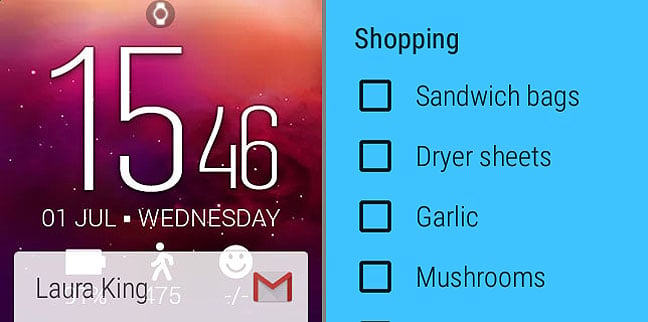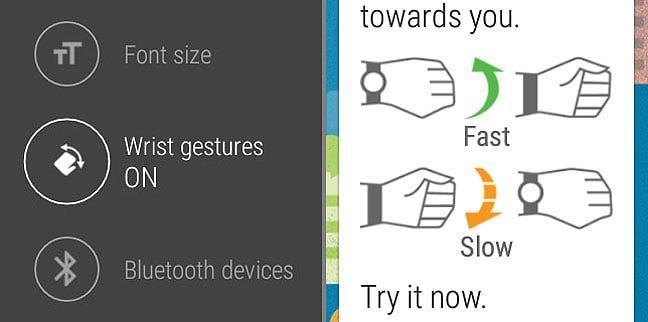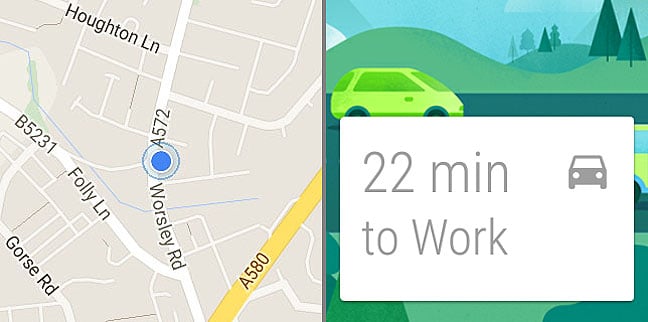This article is more than 1 year old
Android Wear 5.1: A more enduring wristjob for your pleasure
Update breathes new life into Reg man’s strap on
Keep sake
A final left swipe brings you to the old Actions screen. The Actions menu is where you carry out tasks such as setting alarms, making a calendar entry, firing up Google Navigation by saying “Navigate to...” or making a note in Keep.
You can also activate voice control with a tap, if you prefer, rather than yelling “OK Google” at your watch to get its attention.

Card-based notifications unchanged, but works well. Check your shopping list on Google Keep
Another handy new UI feature lets you swipe down from the top of the display to be presented with a notifications settings menu which makes it easy to change which alerts you get and access setting such as Cinema (read Airplane) mode.
It’s not just the touch screen menu structure that has changed though. So has the basic method of control. With the new Wrist Gestures feature it’s possible to scroll through your notification cards with a quick flick of the wrist. Or rather a quick spin of the wrist one way and a slower one the other.

What's the secret? "It's in the wrist action"
Change the quick-then-slow flick order from ‘away’ first to ‘towards’ and you can scroll to the previous rather than the next card. This makes navigating through Android Wear cards a genuinely one-handed experience. It actually works reliably too.
Single handed use is also helped by the expansion of the always-on screen facility. This is a low-power display option that previously only watch faces could utilise. Now it’s been opened up so all apps can use it. The list of apps that currently use this new feature is pretty small – Keep, Maps and, as far as I could see, no more – but once developers start making use of it that should change.

Maps performance much improved with vital info now just a shake of the wrist away
To be frank, always-on isn’t that great with Maps. Viewing the regular map image on a 1.63-inch 320 x 320 display isn’t that easy, and looking at a faded-out monochrome rendition is considerably harder. Keep makes better use of it. A short shopping list that is always visible when you glance at it is not without its uses, as I’ve discovered while trudging along the aisles of Tesco.
